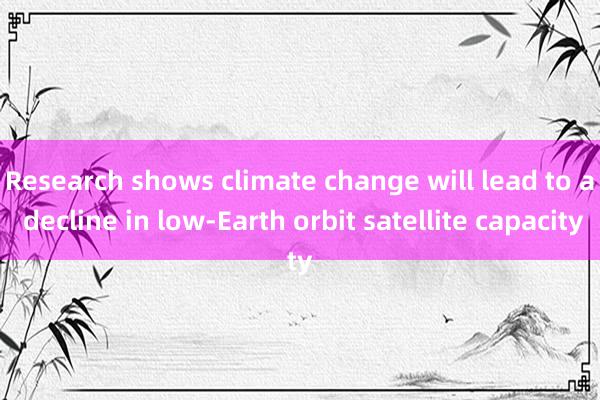The Massachusetts Institute of Technology issued a communiqué on its official website on the 10th saying that a new study led by researchers at the school showed that an increase in greenhouse gas emissions will weaken the atmosphere's ability t...

The Massachusetts Institute of Technology issued a communiqué on its official website on the 10th saying that a new study led by researchers at the school showed that an increase in greenhouse gas emissions will weaken the atmosphere's ability to clean up space waste, and over time, the ability of low-Earth orbit carriers such as satellites will decline.
The study, jointly conducted by researchers at MIT and the University of Birmingham, UK, says that an increase in greenhouse gases such as carbon dioxide in the atmosphere will cause more heat to be released into space in the form of infrared radiation, which will cause high-rise atmospheres to cool and shrink. This shrinkage reduces the atmosphere density in the low-Earth orbit area, thereby reducing the atmosphere's resistance to waste satellite debris. Atmospheric resistance could have caused the space garbage to burn out due to friction. Reduced air resistance will extend the life of satellite debris in orbit and increase the risk of collision with other satellites.
researchers simulated how different greenhouse gas emission scenarios will affect the high-rise atmosphere and orbital dynamics. Simulation predictions show that under high greenhouse gas emission scenarios, satellite carrying capacity in low-Earth orbit areas at altitudes of 200 to 1,000 kilometers above the ground may be reduced by 50% to 66% by the end of this century. Researchers predict that even if the number of satellites in local orbit areas exceeds their carrying capacity, the area will experience "out of control instability", namely, chain collisions occur and large amounts of debris, causing satellites in the area to not operate safely.
Related papers were published online in the British journal Nature-Sustainable Development on the 10th. William Parker, the first author of the paper and a researcher at the MIT, pointed out that the future situation of satellite debris in orbit is closely related to whether humans can effectively curb greenhouse gas emissions. Humans rely on the atmosphere to clean up satellite debris. If the atmosphere changes, the satellite debris environment will also change.